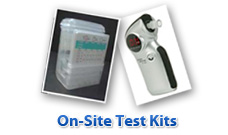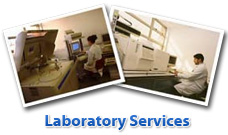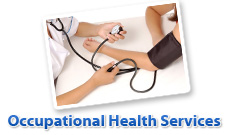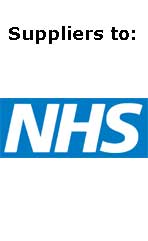Alcohol and Drug Awareness At Work
Spurred by a requirement to ensure safety, well-being and health of employees and visitors, random drugs screening has become noticeably popular throughout Britain. Having said that, there still persist an abundance of myths surrounding the process, that might create misgivings amongst the staff being screened.
Alcohol and Drug Awareness At Work – Where exactly are the real dangers?
Many individuals suppose that the influence of alcohol and drugs throughout the average workplace is a minor issue. Pretty much everybody has taken notice of Christmas time anti-drink-driving TV campaigns and as a result, keep in mind that drink-driving and drug-driving isn’t safe, so isn’t it possible to rely on the general public’s common sense? Unfortunately, as many as fifty percent of all roadside and industrial fatalities across England and Wales relate to alcohol, drug abuse, or both together. Latest available data show that around 70 % of illicit drug abusers are engaged in full-time employment, which means that the typical substance abuser is, in a sense, the typical staff member. More recent Home Office research put the amount of 16 to 29-year-olds that have abused illegal drugs within the most recent year at just over fifty percent of that age range. Therefore, it is irresponsible to view this as somebody else’s concern, it has an impact upon pretty much every industrial environment. Whilst the indulgence in illegal drugs doesn’t automatically mean risk-taking and irresponsible attitudes within the business, it does drastically broaden the probability of accidents and near misses, absenteeism and attendance issues, a marked reduction in productivity, damages to workplace equipment, legal issues and a faster turnover of personnel.
Alcohol and Drug Awareness At Work – What is your recommendation? Isn’t random drug testing complicated to set up?
A lot of businesses only perform a workplace drug test in the event of an accident in the workplace, an incident, or anytime they have reasonable grounds for concern or suspect that a worker may be unsafe or unfit to be in the workplace. On account of the vast range of possible dangers found at heavy industrial work environments, a lot of employers view it as completely justifiable to carry out workplace drug and alcohol testing on such occurrences, as a way to avoid them happening in the future.
In contrast, random drug testing takes workplace testing a stage further, whereby a certain percentage of the personnel is picked at random to volunteer a sample. You may see this as invasive, though it is quite commonplace for as little as five percent of the staff to be drug tested up to once in every year. This would mean that only one in 20 staff being drug and alcohol tested, in other words, as a member of staff, your chance of being screened should be just once each 20 years. Amazingly, this form of infrequent screening has actually been proven to decrease rates of failure from a high of forty six percent down to as little as just 2% within only a couple of months. This just shows that the run of the mill substance abuser present in the workplace is not addicted and unable to change, but is just simply making choices about their lifestyle that could be influenced towards a more positive conclusion.
Alcohol and Drug Awareness At Work. Can this be regarded as an infringement of an individuals’ freedoms?
Although a number of individuals on the payroll may be initially resistant to the possibility of on-site drug testing, the significant majority perceive that this is primarily carried out to improve upon the safety of everyone in the business. Provided the level of testing is proportionate to the risks found in the business and does not especially interfere with employee time outside of work, it doesn’t represent a threat to people’s human rights. In the United States, over ninety eight percent of the most successful 1000 corporations drug screen their members of staff without any issues.
Is there any risk when abusing drugs and alcohol outside of the working environment?
Plenty of street drugs have actually formed a softer image due to their repeated exposure in the nation’s newspapers and magazines. In reality, expressions including “recreational cocaine use” can cause a great deal of harm due to it glossing over the risks to consumers. For a significant proportion of people, cocaine is more habit-forming than heroin and, as a result can not be abused on a recreational basis without having considerable threat of falling prey to addiction. Dependency aside, cocaine purity has dropped from an average of forty five percent cocaine concentration in 2004 to as low as around 25% purity as of 2010 (with the purity of cocaine being as low as nine percent reported). Worryingly, the chemicals used to cut the cocaine powder range from dangerous anaesthetics, carcinogenic chemicals, dog worming chemicals, through to cockroach insecticide. The fact of the matter is that you can never ever trust a drug dealer.
Indeed, drugs generally thought of as soft drugs frequently still carry dangers. At the present time in England and Scotland, a frightening 92% of everyday people admitted for treatment for mental health problems are heavy cannabis users. With this in mind, workplace alcohol and drug screening unquestionably possesses the potential to attack wider antisocial and mental health concerns when it eventually becomes more common.
Read more about on-site drug testing together with home drug testing kits, stop by www.drug-aware.com
Information on the author: Christopher Evans is the Technical Director of Drug-Aware Ltd, a provider of Alcohol and Drug Awareness At Work, drugs and alcohol testing kits, lab services as well as alcohol awareness education. He has educated literally thousands of delegates across hundreds of organisations, HM Prison Service, the British police and hospitals and GP surgeries across the United Kingdom.








